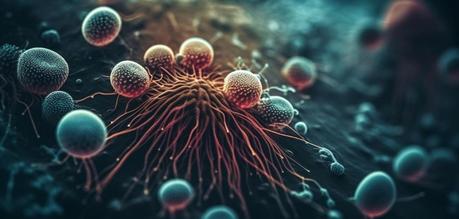
In the heart of Vienna, a groundbreaking initiative has taken root. Meet HD Immune, a pioneering company dedicated to combating Huntington's disease through innovative antibody therapy.
The recent strides made by HD Immune are detailed in the study titled " Reducing huntingtin by immunotherapy delays disease progression in a mouse model of Huntington disease," published in Neurobiology of Disease.
Stefan Bartl, PhD, the CEO of HD Immune and lead author of the study, emphasized the company's strong position with impressive pre-clinical data. Their lead monoclonal antibody, C6-17, has exhibited significant efficacy in treating transgenic models of Huntington's Disease.
Huntington's disease arises from mutations triggering the production of an aberrant huntingtin protein. The C6-17 antibody, meticulously designed by HD Immune, specifically targets the mutated form of this protein. This innovative approach harnesses antibodies' ability to guide the immune system against perceived threats.
Antibodies, vital proteins crafted by the immune system, play a pivotal role in defending against threats. Monoclonal antibodies, a lab-engineered variant, enable mass production, offering a scalable solution for treatment.
Upon binding to its target, the C6-17 antibody signals nearby immune cells to initiate phagocytosis, a process crucial for eliminating threats. The potential clearance of mutated huntingtin protein holds promise for mitigating the impact of Huntington's disease.
HD Immune's researchers highlighted the versatility of antibodies, capable of targeting mutated protein in both the brain and the rest of the body. This broad-spectrum approach contrasts with many other treatments limited to specific sites.
The researchers suggested combining antibody treatment with other modalities, such as DNA/RNA targeting approaches, to maximize benefits for patients. Preliminary cell experiments showcased the C6-17 antibody's ability to adhere to mutated huntingtin protein, triggering phagocytosis in immune cells.
Moving from lab experiments to real-world application, the antibody was tested in a mouse model of Huntington's disease. Results indicated a 15% reduction in mutated huntingtin protein levels in the striatum, a critical brain region affected by the disease.
Motor function tests, while showing a tendency toward slower decline in mice treated with the antibody, did not consistently reach statistical significance. This underscores the need for further exploration and refinement as HD Immune advances to human trials.
Crucially, the researchers are actively working on engineering a human version of the C6-17 antibody. Dr. Stefan Bartl expressed optimism about the potential of this antibody to slow down the disease's progression, ultimately enhancing the quality of life for patients.
In the realm of medical innovation, HD Immune stands at the forefront, bridging the gap between promising pre-clinical data and the pursuit of transformative treatments for Huntington's disease.

